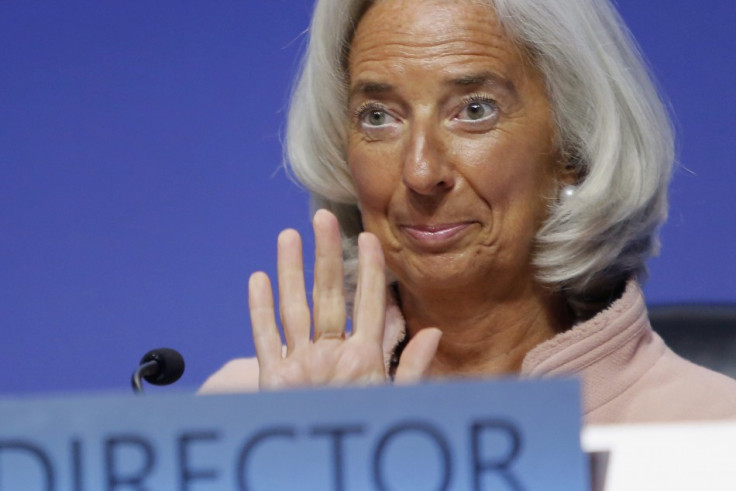IMF: Global Regulators Need Better Coordination to Overhaul Banking Sector

Global regulators need better coordination in order to overhaul the world's banking sector, says the International Monetary Fund.
As part of the IMF's annual meeting in Washington DC, the IMF's director of communications Gerry Rice said that banking reforms will only be completed if regulators from different countries band together better to outline new rules.
"The global economy is going through transitions on a number of fronts. One of them is the financial sector which five years after the Lehman's crisis, we all know that is where it began, and again progress on the financial sector but a lot more to be done," said Rice.
"The spill over effects, as we say, from one country's policy to another is increasingly obvious."
He explained that it is important for IMF member countries to work together to clean up weak banks to avoid future financial catastrophes.
This focus comes as the eurozone's finance ministers meet in Luxemburg to discuss the potential repairs they may have to make to the continent's weakest banks, which were violently exposed during a debt crisis which nearly destroyed the euro.
The European Banking Authority highlighted the importance in clearing up the most damaged of the eurozone's banks as they found a €70bn (£59.3bn, $94.8bn) shortfall on the banks' balance sheets in September.
Paul Tucker's Warning
Paul Tucker, outgoing deputy governor at the Bank of England and a key player in international bank reform, reinforced the message in a major speech in Washington DC.
At the annual meeting of the Institute of International Finance, Tucker gave a lecture entitled Solving too big to fail: where do we things stand on resolution.
He said that the Basel III regulations, which require banks to hold up to 7% of their risk-weighted assets in reserve to withstand economic shocks, might not be enough.
"As I see it, the amount of equity that a host regulator requires to be held in subsidiary over and above the Basel minimum requirement may vary" according to different circumstances, Tucker said.
Banks are required to meet these minimum capital requirement ratios by 2019.
"What I am describing would entail some recasting of the key pillars of international supervisory co-operation: the Basel Concordat, Core Principles of Supervision, and Capital Accord," he added.
Tucker said that it was essential to solve the 'too big to fail' problem, and required international co-operation to solve banking problems worldwide.
"It is absolutely essential that the TBTF problem is cracked. Nothing is more important to the success of the international reform agenda. Without it, global finance would remain fragile; and to protect against that, the international financial system would balkanise as individual countries sought to protect themselves. The stakes are high."
© Copyright IBTimes 2025. All rights reserved.






















